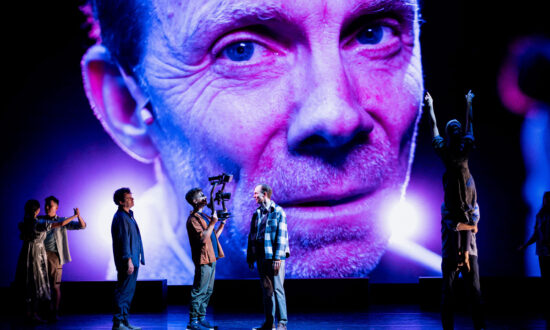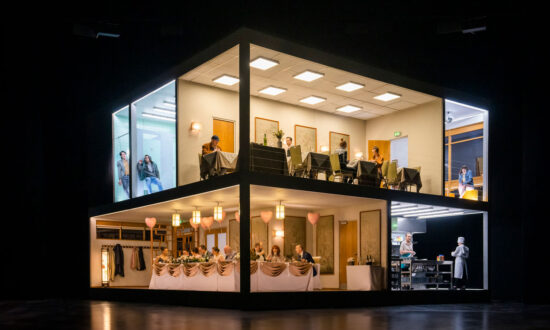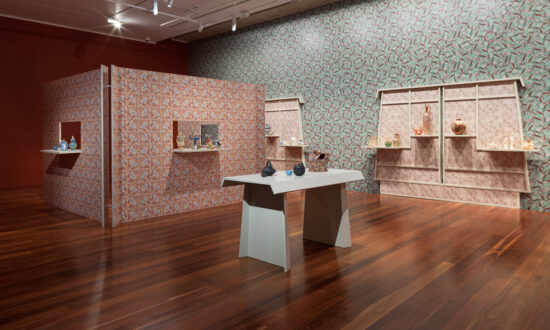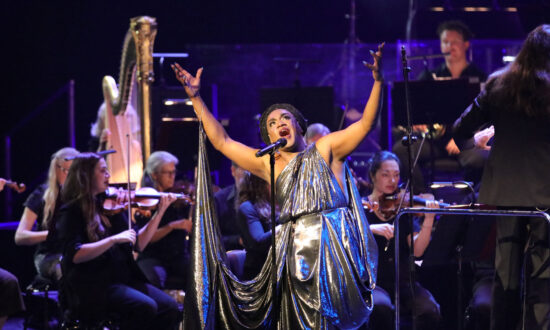Palestinian poet Mohammed El-Kurd, politicised as a boy when Jewish settlers forced their way into his East Jerusalem home, made no apology for the upset that caused the State Government to consider withdrawing funding for the event.
Despite the controversy, there was no hint of protest during yesterday’s session, in which El-Kurd beamed into the Pioneer Women’s Memorial Garden.
El-Kurd said a Palestinian strategy of avoiding violence and rage had failed and he had stopped trying to peacefully persuade people about Palestine’s right to exist, even if it meant Australia was up in arms at his participation in Writers’ Week.
“There is this prerequisite for me: it’s not enough that I have lost my home to Israeli settlers, it’s not enough that I grew up and lived as a refugee under military occupation,” said El-Kurd, named by Time magazine in 2021 as one of the 100 most influential people in the world.
“Those things are not enough. I need to be polite in my suffering. I need to be respectable.”
He rejected years of attempts by Palestinian writers, and himself when he was younger, to seek international support and sympathy by humanising the tragedies resulting from the forced eviction of Palestinians by Israel.
“I think we have been engaging in a failed strategy for the past few decades in that we over-emphasise the women and the children, we over-emphasise our inability to commit violence, our inability to feel rage,” he said. “And we over-emphasise the victims whose qualifiers make them human.”
He gave as an example the death last year of Palestinian-American journalist Shireen Abu Aqla, by an Israeli bullet, according to the UN who investigated the shooting. El-Kurd said it wasn’t enough that a Palestinian woman was shot in the street by Israeli police, she had to be made relatable.
“We needed to say over and over again that she was a journalist, that she had a Press vest on, that she was a Christian, that she had a pet dog, she had an American passport,” he said.
Another dispossessed Palestinian panellist at the session Authors Take Sides, journalist Dr Ramzy Baroud, was brought to tears trying to explain how it felt for the world to stand by while families like his were dispossessed over generations. He said the question of taking a side between Israel and Palestine reeked of privilege: for him it was about survival.
He said in the past week 35 homes were torched in the West Bank town of Huwara by armed Israeli settlers who acted with impunity, without international accountability or repercussion.
“For me, as a refugee, it pains me, for my grandparents … whose village was torched,” he said. “They lived their entire life holding onto this hope and dream that they would go back. And then they died and they are buried in an ever-expanding refugee camp’s graveyard, seeing no recourse whatsoever, no justice.”

Get InReview in your inbox – free each Saturday. Local arts and culture – covered.
Thanks for signing up to the InReview newsletter.
He said 75 years on, he was a third-generation refugee whose fourth-generation daughters were trying to impress on the world that they existed.
“This should not be happening to us, it shouldn’t be happening in the 21st century,” he said. “Do excuse me for my emotions and for being angry. We don’t have the privilege of thinking about this from a moral or ethical point of view. We think about it from a survival point of view.”
Adelaide Writers’ Week continues in the Pioneer Women’s Memorial Garden until March 9. InReview will be reporting from Writers’ Week each day – read coverage of other sessions here.
Read more 2023 Adelaide Festival stories and reviews here on InReview.
Support local arts journalism
Your support will help us continue the important work of InReview in publishing free professional journalism that celebrates, interrogates and amplifies arts and culture in South Australia.
Donate Here




